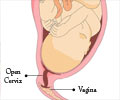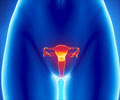Side-Effects of Treatment
Often, cancer treatment results in damage to healthy cells and tissues, leading to unpleasant side effects. Side-effects depend upon the type and duration of the treatment. Also every person reacts differently to treatment.
A list of side effects generally associated with each treatment method.
Surgery
Depends on the location of the tumor, the type of operation, the patient's general health and other factors. Patients often feel pain for the first few days after surgery; this can be controlled with medicine. Patients may also feel tired or weak for a while.
Radiotherapy
Varies according to the treatment dosage and the part of the body that has been treated. Fatigue, skin reactions (like a rash or redness) in the treated area, and loss of appetite are common. There could also be a drop in the number of white blood cells, which help protect the body against infection. In most cases, the side effects are not permanent and the doctor can usually control them.
Chemotherapy
This depends on the drugs used and their dosages. Anti-cancer drugs affect cells that divide rapidly, especially blood cells which fight infection, help the clotting of blood or carry oxygen to the various parts of the body. If blood cells are affected, patients are likely to get infections, may bruise or bleed easily, and experience a loss of energy. As cells that line the digestive tract also divide rapidly, these may also be affected causing loss of appetite, nausea, vomiting, or mouth sores. These side effects often disappear in the recovery period or after treatment stops.
Patients are often concerned about chemo-related hair loss. Some drugs cause hair to thin out while others could lead to the loss of all body hair. It is best that the patient is informed beforehand and ways to handle hair loss discussed before treatment begins.
Loss of fertility, temporary or permanent, happens to some patients. Periods may stop and hot flushes and vaginal dryness are common. Periods are more likely to return in young women.
Hormone Therapy
Patients may experience nausea and vomiting, swelling or weight gain, and, in some cases, hot flushes. Interrupted menstrual periods, vaginal dryness and loss of fertility could also happen. Changes may be temporary, long lasting or permanent.
Biological therapy
Depends on the type of treatment. Flu-like symptoms such as chills, fever, muscle aches, weakness, loss of appetite, nausea and diarrhea, occur. Some develop a rash while others bruise or bleed easily. Patients may have to be hospitalized for treatment, if the problems are severe. These side effects are usually short-term and go away once treatment stops.















